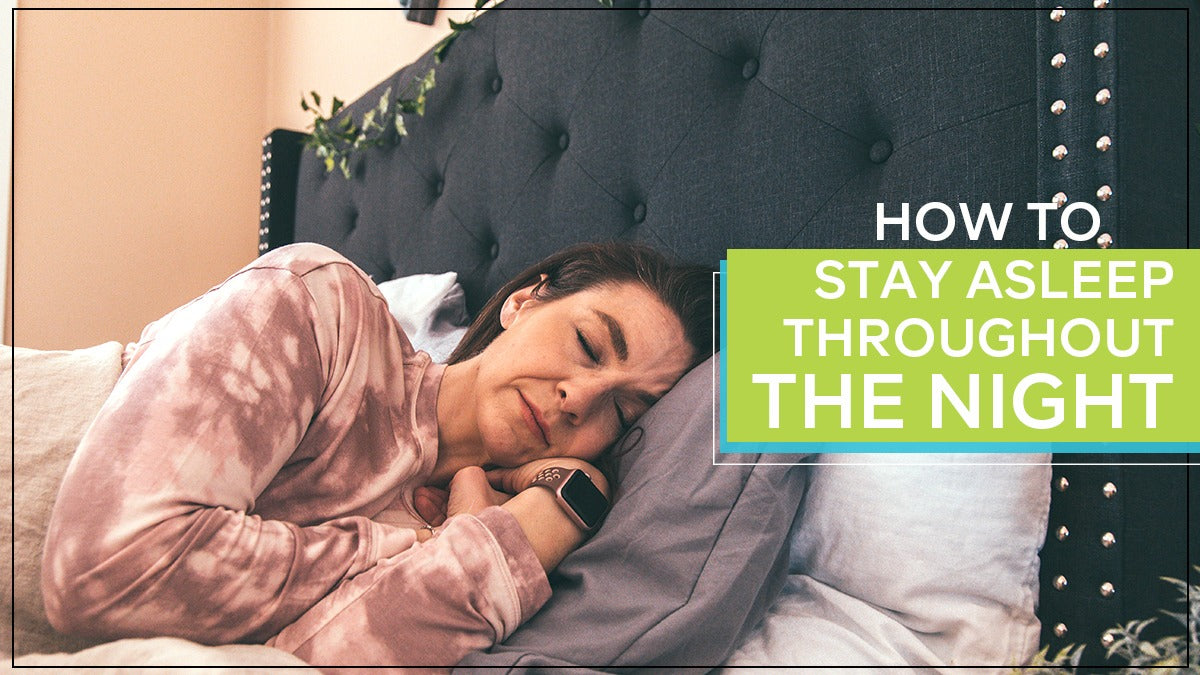
Do you struggle to stay asleep at night? You’re not alone. More than a third of American adults are not getting enough sleep on a regular basis.
So what happens when you don’t get enough sleep? Sleeping less than seven hours per night can harm your well-being and also have adverse health effects like weight gain, diabetes, hypertension, heart disease, and stroke.
How You Can Stay Asleep
-
There are many reasons why you might not be able to sleep. Some common reasons might include work stress, night work or even a sudden change of schedule. Sometimes street noise, uncomfortable temperatures or even adjustments to a new time zone can cause a lack of sleep.
- Your routine and lifestyle choices can also affect the quality of your sleep. That’s why you can take active steps towards getting a good night’s rest. Some steps you can take include eating and exercising well, sticking to a bedtime, as well as practicing good sleep hygiene.
Watch What You Eat and Drink
A well-balanced diet promotes good health, including your sleep health. How you spend your daytime hours affects the quality of your night-time sleep. Remember you need a daily dose of sunshine, since sunlight signals to your body when it is time to sleep and wake up. Low light exposure in the day confuses the brain and disrupts your body’s day/night cycle. Exercising also improves your wellbeing and your overall sleep health.
Establish a Regular Routine
One way to ensure you get good sleep is by establishing a good day and night routine. Going to bed at a regular time (even on weekends) helps to sync your body to a regular schedule so that you can fall asleep when the time comes. You can create a pre-sleep routine to wind down for the day and help signal to your body that it’s time to fall asleep. A pre-sleep routine does not have to be complicated.
Here are some things you can do:
- Create a cozy and calm bedroom environment
- Take a warm bath or warm up under a blanket
- Wind down with some calming music, read a book or do some stretches
You should not:
- Do work or homework on bed or in your bedroom.
- Use digital devices like phones and laptops or watch tv just before sleeping. Digital devices give out blue light, which makes you more alert and makes it difficult to fall asleep.
- Do intensive exercise.
If you find yourself waking up in the middle of the night and can’t get back to sleep, get out of bed for a few minutes. Rather than tossing, turning, and getting frustrated, get up and do some calming, low-light activities. (make yourself some tea, stretch, read a book, or try some relaxation techniques or bedtime yoga to help yourself wind down again)





Leave a comment
This site is protected by hCaptcha and the hCaptcha Privacy Policy and Terms of Service apply.